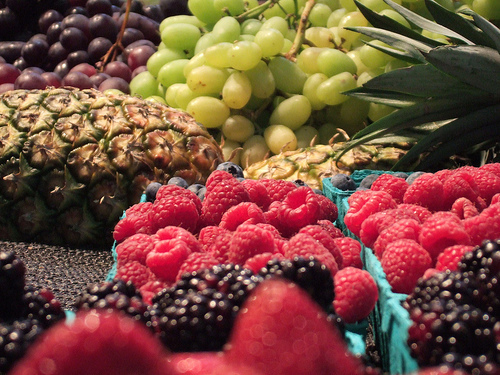Food
 We can’t live without it! With more than 7 billion people on earth the demand for food has never been bigger. The average annual food cost for a typical UK household was around £4,805 in 2019 (based on the average 2.4 people per household), including £276 spent on non-alcoholic drinks. The average weekly food cost for the typical UK household is £92, up 1% from 2018. That’s a lot of food!
We can’t live without it! With more than 7 billion people on earth the demand for food has never been bigger. The average annual food cost for a typical UK household was around £4,805 in 2019 (based on the average 2.4 people per household), including £276 spent on non-alcoholic drinks. The average weekly food cost for the typical UK household is £92, up 1% from 2018. That’s a lot of food!
The first question is - where is all this food coming from? Our food comes from all over the world - your green beans might come from Egypt, coffee maybe from Africa, perhaps your bananas have travelled from Ecuador and apples flew across the Pacific Ocean from New Zealand. All of these ‘food miles’ amounts to a lot of transport and transport means fuel and fuel means pollution.
What else does food need to grow? Water and good soil! Plants and trees that give us fruit need to eat too you know. Some countries and farms add pesticides and insecticides to food to keep away pests and insects. These chemicals can sometimes be harmful to wildlife and their habitats and sometimes to humans too. Look at ‘How to help’ to find out more.
Here in the west we eat 7 times more than people in poorer countries. And one thing we eat a lot of is meat and dairy food. What do these foods have in common? Meat and dairy food both come from animals, and animals also need food and water. And as we saw just now, they also burp a lot! Livestock belches produce a greenhouse gas called methane and all this amounts to 20% of the world’s climate-changing gases. Phwoar! A suggested alternative to meat is insects - insect burger anyone?
How to Help:
- Grow your own growing your own food is fantastic way to learn more about and appreciate the hard work that goes into our food - and its healthier too!
- Reduce your mileage eating food and drinking drinks produced in the UK reduces the carbon footprint of your diet. This means that you are helping to reduce pollution! Look at the for little red tractor on products in your supermarket.
- Meat Free Mondays are an easy and effective way to cut down on meat. Make one or even two of your days meat-free.
- Eat organic organic foods have had no insecticides and pesticides added to them which makes them that bit more natural and healthy. Eating organic food reduces how many chemicals are made and spread across the countryside.
- Get worms! Food waste is an important issue as 7 billion of us munch our way through millions of tonnes of food. Give your leftovers to worms in your very own wormery and they’ll turn it into rich and healthy compost for your vegetable garden and flowers!
- Washing Always wash your hands before eating to prevent the spread of invisible bad stuff like bacteria and chemicals. It’s also good to wash fruit and vegetables before eating or cooking.
For more information see our factsheets - Meat Free Mondays, Future of Food and The Yippittee issue on Food Glorious Food.
Read More: Water